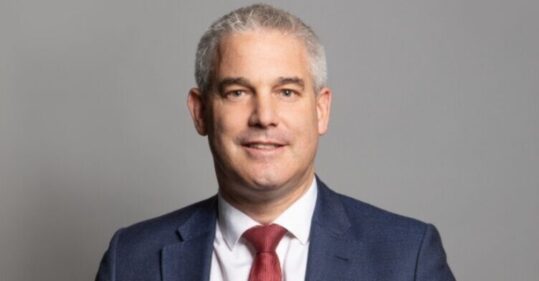The health and social care secretary Steve Barclay has said that meeting nurses’ pay demands would make it more difficult to reduce the NHS backlog.
Speaking this morning on Sky News, Mr Barclay said: ‘If we were to meet the union’s demands, which is a 19% increase. [This is] about three times more than many of your viewers themselves will be receiving. That 19% would make it much more difficult for us to get the backlogs down and to invest in things like community diagnostic centres.’
Related Article: Isle of Man nurses consulted on ‘fair pay offer’
This comes only a week before the RCN is set to begin the first day of national strike action in NHS employers across England, Wales, and Northern Ireland.
Currently, the RCN is demanding a pay rise of 5% above inflation. Taking the current level of retail price index inflation of 14.2%, this would account for the 19% pay rise referred to by Mr Barclay.
Mr Barclay said: ‘I am very happy to have talks with them. When I met with Pat. she raised a number of issues of concern. Pay was one but it wasn’t the only one… They have said they want to negotiate on this year’s pay alone as a pre-condition [of meeting], when there is a range of issues that the trade unions say matter to them.
Related Article: Consultation launched on long term conditions framework for Scotland
‘I’ve made it very clear that I’m open to talks with the trade unions. I haven’t set any preconditions on that, I’m willing to meet them; I’ll meet them today.’
In a statement, Steve Barclay said: ‘NHS workers do an incredible job caring for our loved ones and it is disappointing some will be taking industrial action, ahead of a challenging winter. The economic circumstances mean unions’ demands are not affordable – each additional 1% pay rise for all staff on the Agenda for Change contract would cost around £700m a year.
Related Article: Nurse fatigue should be recognised as serious risk to patient safety
‘Our priority is to ensure emergency services continue to operate for those who need it and limit disruption, particularly at a time when NHS services are under huge pressure due to the impact of Covid.’






